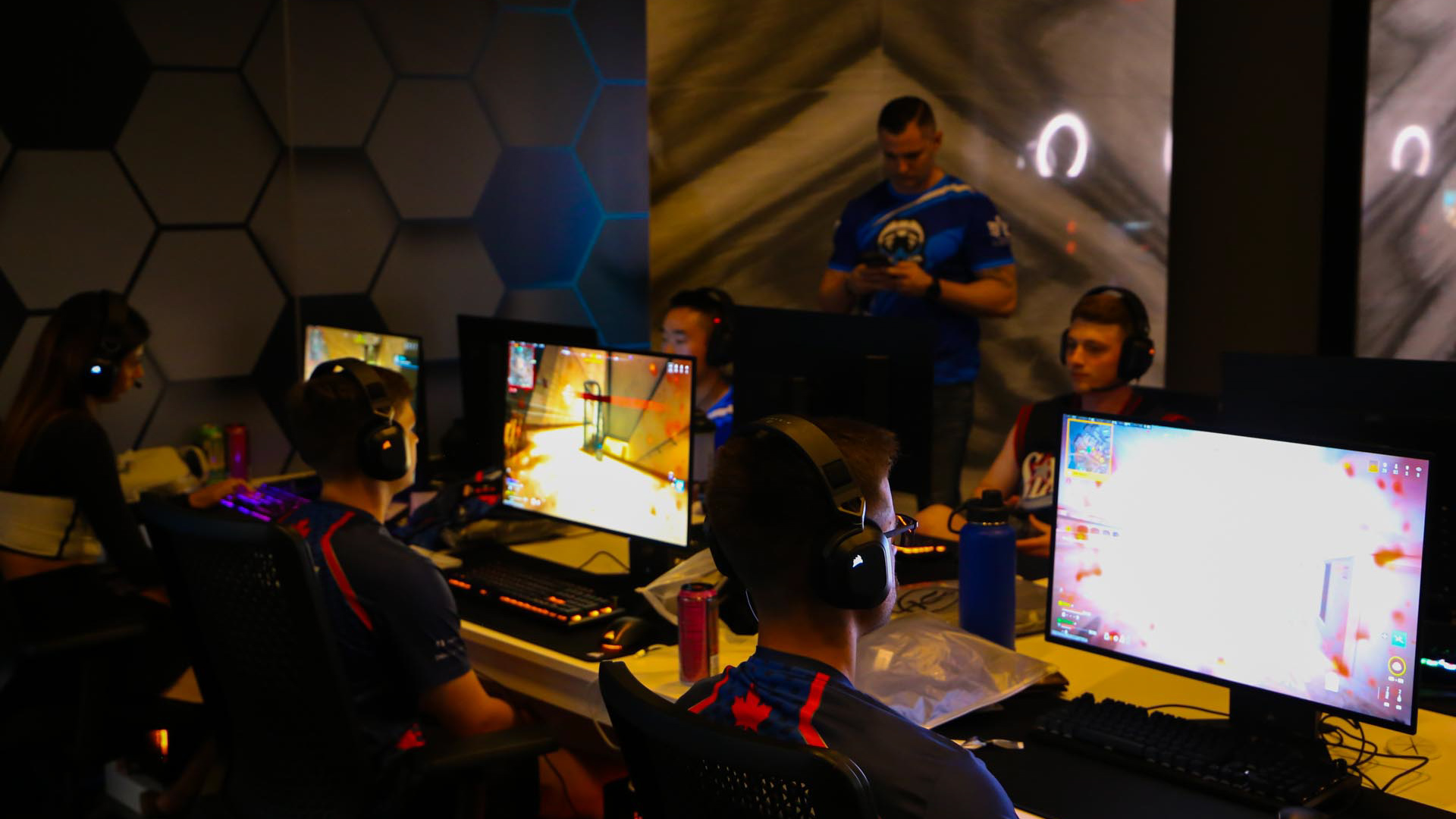Esports offer a massive benefit to Britain's Armed Forces, say military gamers
Code Bowl, the highly anticipated annual global esports tournament, is underway, drawing together many of the world's finest military video gamers and influential streamers.
This year's showdown is in the US capital, Washington DC, where skilled players from the Royal Navy, British Army, Royal Air Force and US military are aiming to topple the defending champions, the Royal Canadian Air Force.
Each team has multiple pairs taking on their counterparts in Call of Duty battlefield scenarios, utilising top levels of concentration, communication and competitive spirit.
Among the military participants there is a palpable sense of excitement, as well as an air of expectation and hope as they represent their services with pride.
However, there is also a distinct feeling that esports backers have had to prove its worth and challenge traditional stigmas.
But why does it matter to the military? Why is Call of Duty, and the wider esports sphere, drawing so much attention and recent support?
Esports has earned its spot in the military sporting calendar.
Split-second decision making, hand-eye coordination, digital skills, in particular, for cyber or computer-focused roles, and evaluation of strategy are also touted as key benefits for military personnel who engage with esports.

WO2 Martin Dixon, who manages the British Army Warzone team, told BFBS: "I think the stigma of sitting there playing computer games, take that away from it, what you're enhancing from people playing computer games is exactly the attributes that you want out of people in work – teamwork, communication.
"Obviously, it's sedentary, but there's still a lot of cognitive work that goes into sitting there playing it [at a] very high level, and I'm sure that people are fairly knackered at the end of the day competing as well."
The RAF's Code Bowl captain, AS1 Jamie Griffith, says he believes the largest part is morale.
He said: "You've got guys who are just spending it [time] in their rooms on camp, so actually having that community there to lift those spirits up, they perform better in their day-to-day jobs. It’s massive."
Experienced British Army gamer Corporal Andrew Gibson believes trust is also key.
"Trust in every single person you play with, to make sure that you win. Make sure you trust their ability, you trust they know what they're doing, make the right calls, make the right decisions and go on from there," he explained.
Sergeant Pete Hodson, OIC RAF Esports Call of Duty, said: "We've got lots of jobs in the Air Force that require computers.
"In my trade, for example, I sit behind a radar screen for hours on end, high levels of concentration, adaptability, communication. All of these are skills that can be easily transferred to esports and to gaming."
Those may be the benefits, so why have personnel had to work hard to prove its worth?
RAF skipper Griffith told BFBS: "That’s the biggest thing, especially with esports, it's people not considering it a sport.
"They change their minds very quickly when you tell them you're going to America to do these big tournaments and you're playing against the likes of the best players in the world, then they're like 'ok', there's a little bit of jealousy there so I'm like, 'get involved'.
"This is the first year that it's actually a represented sport, which is huge. There's support coming from the wider Air Force and you've got the likes of two stars and three stars upwards really getting involved and recognising what we do here which is huge, because that just helps drive it forward."
Speaking about the challenge of dispelling esports myths, Army team manager Dixon added: "I think that probably sits with higher echelons of defence people that haven't grown up with computer games themselves or not involved.
"It's displaying to them what are the actual benefits that we give back to the organisation, being able to play a sport as it is now."
Dixon said he believes military support is "well on the way" to being equal to the backing given to other more traditional forces sports.
He explained: "Possibly the amount of people that are playing, I'm sure that there's lots of people that are sitting there in their rooms in the evening that are playing esports, whether it be competitive or not, that would definitely be good enough to be able to come out here to America to be able to compete against other forces.
"I think that capturing those people is what British Army esports needs to concentrate on."
Could esports enable the military to combat recently reported challenges with recruitment?
Personnel at the event in Washington DC have been quick to point out how not only can the military attract young gamers by offering global events such as Code Bowl as part of a life in the forces, but esports also attract skillsets critical to future warfare, such as cyber and space.
The RAF's Sergeant Hodson said: "People join up for all sorts of reasons. I go back to sports – people join up because they get so much time off work to go and do the thing they love. Now it's the same with esports.
"Esports is a huge thing – we have four recognised esports at the moment. That's only going to grow, so the more it grows, the more people we recruit, the more people we attract, especially when numbers are tough.
"So if we can get more people in with a variety of skillsets for a variety of reasons, doing something they love, that’s brilliant."









